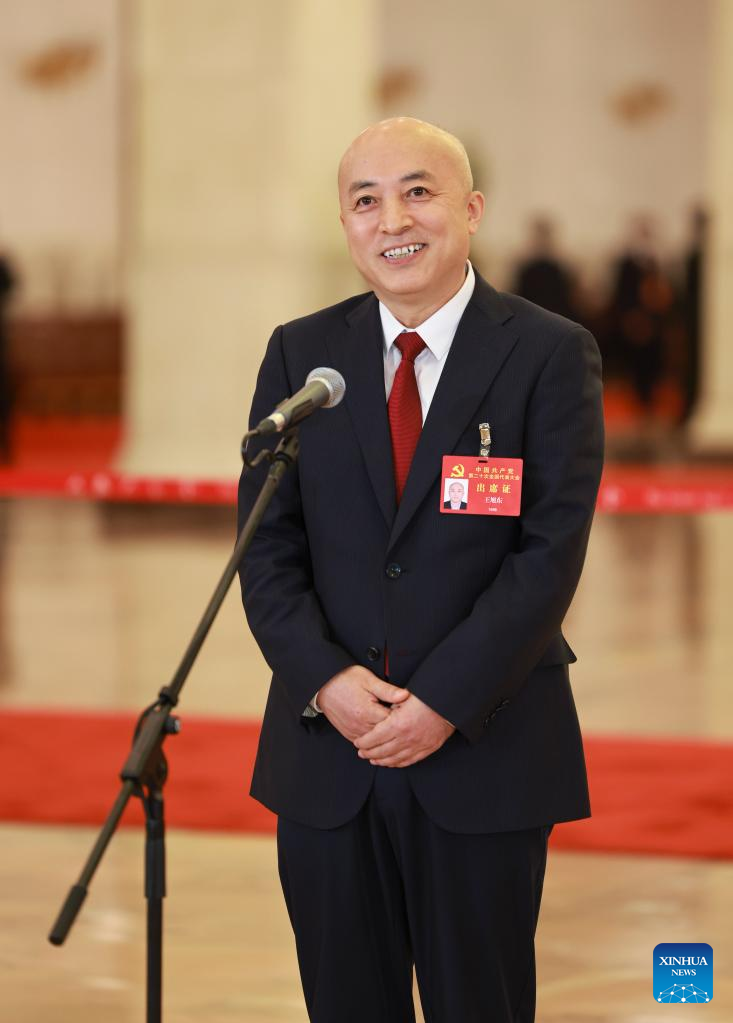Palace Museum director vows to promote cultural exchanges


The Palace Museum will continue promoting cross-border exchanges in cultural heritages and thus inspire the modern world, said the director of the museum.
"To turn the Palace Museum into a place for mutual learning among different civilizations, our mission cannot be realized only through our own effort," the museum's director Wang Xudong, also a delegate to the 20th National Congress of the Communist Party of China, said on Sunday before the national congress opened.
"Our work needs to be joined by our global counterparts," he said.
More international collaboration in training programs, exchange of academic research and personnel and joint exhibitions demonstrating cross-cultural perspectives are on the museum's blueprint.
The Palace Museum, also known as the Forbidden City, was China's imperial palace from 1420 to 1911 during the Ming (1368-1644) and Qing (1644-1911) dynasties. It houses 1.86 million cultural relics spanning over millennia.
In August, the Taihe Visiting Scholar Fellowship Program was launched by the Palace Museum and will benefit researchers from home and abroad to better understand each other and promote internationalization of studies surrounding the Palace Museum.
"In the past decades working as a conservator of cultural relics, I've seen many scholars from many other countries come to China and work to protect the shared cultural heritages of the mankind," Wang said. "Those cultural heritages have been the testimonies of our shared values."
Wang worked in Dunhuang Academy in Gansu province, which focuses on preservation and studies of Mogao Caves, from 1991 to 2019. Mogao Caves, also a UNESCO World Heritage Site, is a complex of hundreds' grottoes from 4th to 14th centuries with exquisite frescoes and statues. It is widely considered to represent the communication and mixture of elements of various cultures and religions along the ancient Silk Road and demonstrates how Buddhist art adopted Chinese characteristics after being introduced from India via Central Asia.
In 2017, Wang, then director of Dunhuang Academy, was also a delegate to the 19th National Congress of the Communist Party of China.
"Protecting the cultural heritages of mankind is safeguarding the peaceful and prosperous world," Wang said. "There are many differences among various cultures, but, as the Chinese tradition highlights, we should seek common ground while reserving differences. It is an idea that should be commonly respected in modern era.
"Communication can strengthen mutual trust among people," he said. "And cultural relics can play a key role in that communication because it connects our past, present, and future."
- Mount Qomolangma sees tourism surge in 2024
- Search ongoing for missing Chinese actor
- Xi, Botswana's president exchange congratulations over 50th anniversary of ties
- International Congress of Chinese Mathematicians to be permanently held in Shanghai
- New plant species found in South China
- Country to play larger role in protecting displaced people from climate change





































